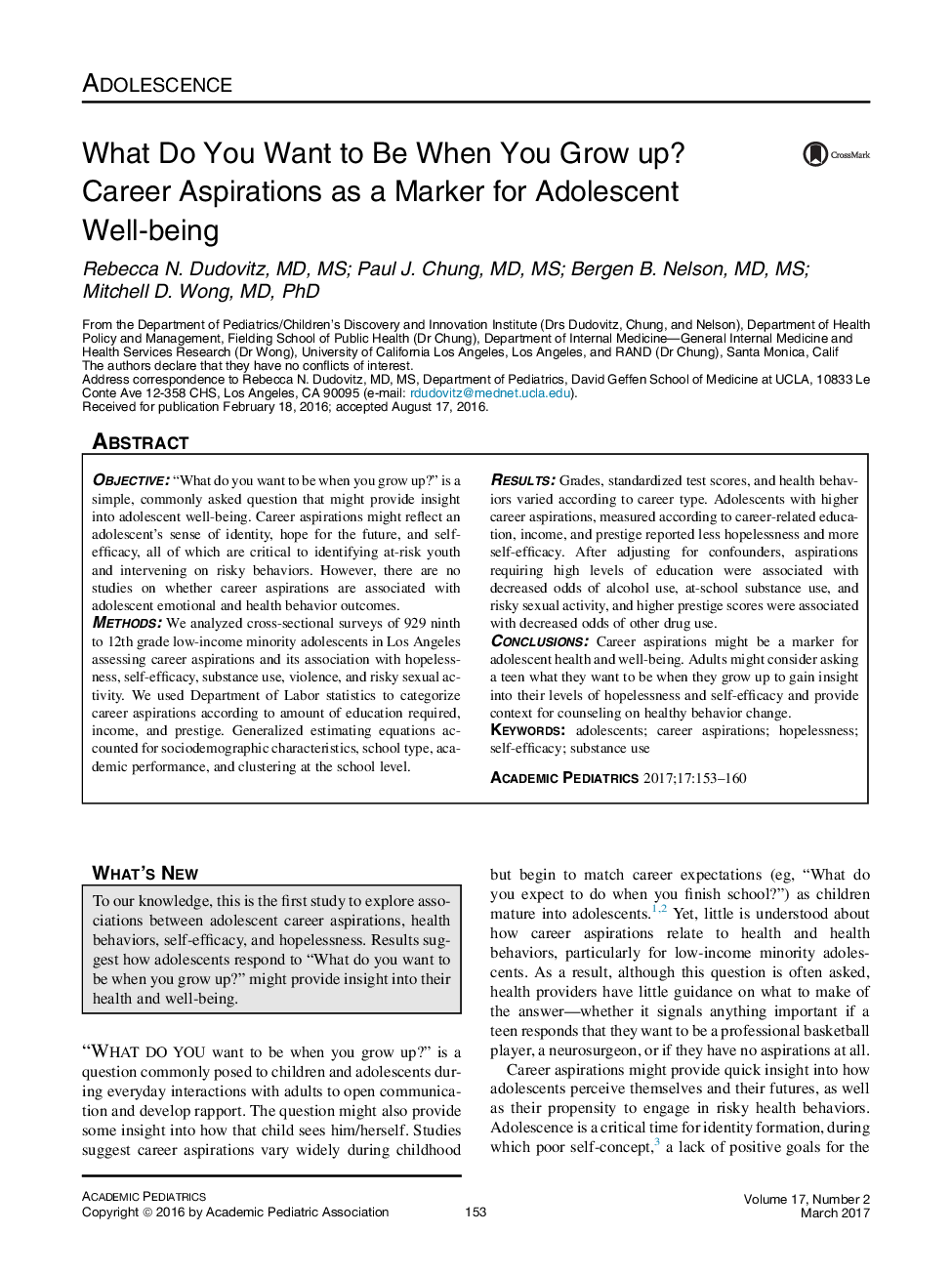| کد مقاله | کد نشریه | سال انتشار | مقاله انگلیسی | نسخه تمام متن |
|---|---|---|---|---|
| 5717045 | 1411178 | 2017 | 8 صفحه PDF | دانلود رایگان |
Objective“What do you want to be when you grow up?” is a simple, commonly asked question that might provide insight into adolescent well-being. Career aspirations might reflect an adolescent's sense of identity, hope for the future, and self-efficacy, all of which are critical to identifying at-risk youth and intervening on risky behaviors. However, there are no studies on whether career aspirations are associated with adolescent emotional and health behavior outcomes.MethodsWe analyzed cross-sectional surveys of 929 ninth to 12th grade low-income minority adolescents in Los Angeles assessing career aspirations and its association with hopelessness, self-efficacy, substance use, violence, and risky sexual activity. We used Department of Labor statistics to categorize career aspirations according to amount of education required, income, and prestige. Generalized estimating equations accounted for sociodemographic characteristics, school type, academic performance, and clustering at the school level.ResultsGrades, standardized test scores, and health behaviors varied according to career type. Adolescents with higher career aspirations, measured according to career-related education, income, and prestige reported less hopelessness and more self-efficacy. After adjusting for confounders, aspirations requiring high levels of education were associated with decreased odds of alcohol use, at-school substance use, and risky sexual activity, and higher prestige scores were associated with decreased odds of other drug use.ConclusionsCareer aspirations might be a marker for adolescent health and well-being. Adults might consider asking a teen what they want to be when they grow up to gain insight into their levels of hopelessness and self-efficacy and provide context for counseling on healthy behavior change.
Journal: Academic Pediatrics - Volume 17, Issue 2, March 2017, Pages 153-160
